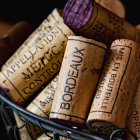Wine critics play an integral role in the wine industry. Using their extensive tasting experience and refined palates, they are able to communicate the many characteristics of a wine to a wide audience, thereby wielding a great deal of power as tastemakers and validators.
As well as providing extensive and consistent tasting notes which describe the specific features of a wine, critics will also give tasted wines an individual score or rating. These scores serve to inform drinkers of the quality of a wine, and also to act as a barometer for a wine’s commercial success, since critic ratings have an observable effect on market prices. In fact, the results of a study by Colin Hay, conducted between 2004 And 2005, indicated a 50% increase in price based on the scores of eminent critic, Robert Parker, alone.
The wine industry’s top critics
Robert Parker
Parker shook up the world of wine in 1978 when he launched the first free issue of his bi-monthly newsletter, The Wine Advocate. This was the first independent consumer guide to buying wine and had a huge effect on the American wine-buying public. The introduction of his 100 point scale had an incomparable influence on wine critics, many of whom previously rated wines on a scale of 20. Arguably the most influential wine critic in history – with a nose and palate insured for $1 million – Parker officially retired in 2019 but left an unsurpassed legacy within the wine business. The Wine Advocate is now edited by Lisa Perrotti-Brown MW (below).
Jancis Robinson MW
Arguably the most well-known British wine critic, Jancis Robinson was the first individual outside the wine trade to earn the prestigious title Master of Wine – the highest possible professional qualification in the wine trade. In 2003 she was made an OBE, and even advises Queen Elizabeth on her personal wine cellar. Her column in the Financial Times and her tasting notes on her personal blog are followed by a legion of faithful fans worldwide. Her ratings, on a 20-point scale, are largely regarded as second only to Robert Parker’s in terms of influence, and provide a valuable counterpoint to his scores.
James Suckling
Suckling began his career at Wine Spectator during the 1980s and oversaw the monumental growth that has made it one of today’s leading wine publications. In 2010 he launched his own website, JamesSuckling.com where he reviews his beloved Bordeaux wines according to the ‘Wine Spectator 100-point scale’, very similar to Parker’s own. Suckling has been created with bringing a more modern style of wine reviewing to the fore, with his website featuring a strong mix of blogs, video tastings and guest interviews.
Antonio Galloni
Antonio Galloni’s life-long fascination with wine blossomed thanks to a childhood spent watching his parents selling Italian wines in the USA. In 2004, while studying for an MBA at MIT's Sloan School of Management, he started the Piedmont Report newsletter, profiling the wine of Piedmont and catching the attention of Robert Parker. He later joined The Wine Advocate as a reviewer of Italian wines. In 2013, he left the title to start his own internet-based magazine, Vinous, targeted as a wider audience of wine lovers.
Lisa Perrotti-Brown MW
Perrotti-Brown’s wine career started somewhat by accident when, living as a struggling playwright in London after college, she stumbled into a job as the manager of a wine bar. She then progressed through wine roles within the UK wine trade before moving to Tokyo in 2002 where she worked as a wine buyer for one of Japan's top fine wine importers and as a wine educator at Tokyo's Academie du Vin. In 2008 Lisa began writing a column for Robert Parker's website, RobertParker.com, and later that year she achieved her Master of Wine qualification and the Madame Bollinger Medal for excellence in wine tasting. Now living in California, she is editor-in-chief for both Wine Advocate and RobertParker.com
Neal Martin
Martin’s career began when he developed a passion for wine while working for a Japanese export company, where he was responsible for the likes of Petrus and Latour. Following the completion of a WSET diploma, he launched wine-journal.com in 2003, and within three years had gained a legion of over 100,000 followers, including Robert Parker who brought him on board to write for robertparker.com. Martin now reviews the wines of Bordeaux, Burgundy, South Africa, and New Zealand for Antonio Galloni’s wine title Vinous.
Tim Atkin MW
Tim Atkin is a British Master of wine and a prolific wine commentator, with regular contributions in global magazines, newspapers and websites. His writing has won him numerous awards, including UK Wine Guild Wine Correspondent of the year, an accolade he has won no less than four times. He is a regular figure on television and radio too, a public speaker, wine educator and sits on the judging panel for a number of prestigious international wine competitions.
Diversity in the wine industry
It’s no secret that the world of fine wine criticism has historically been dominated by men, but things are gradually changing. Jancis Robinson is seen as something of a pioneer for women in the field, and Parker’s appointment of Lisa Perrotti-Brown has helped to galvanise a shift towards a more equitable gender balance.
Two of the industry’s quickly rising stars, for example, are Jeannie Cho Lee MW and Monica Larner. Jeannie Cho Lee is a Hong Kong-based wine critic, journalist and educator. After contributing articles to international wine publications such as The Wine Spectator, The World of Fine Wines and La Revue du vin de France, she joined Decanter as contributing editor for Asia. Lee is currently a professor at Hong Kong Polytechnic University, where she helped to launch the Master of Science (MSc) in International Wine Management.
Larner, meanwhile, is an American wine critic, who began reporting on Italian wines for Italy Daily and was later approached by Wine Enthusiast to be their very first Italy-based correspondent. She then became Italian reviewer for The Wine Advocate, and then later succeeded Antonio Galloni at RobertParker.com.
Wine scores and ratings
In theory, ratings exist to provide an objective measurement of a wine. Critics will typically score wines on a 20-point or 100-point scale, the latter being more common in the US following its introduction by Robert Parker in the 1970s.
A wine’s score allows us to compare one wine versus another in the same peer group – a ‘peer group’ usually being a wine’s provenance or classification. High or low ratings for a Bordeaux wine are not the same as high or low ratings for a Rhone wine, for example. Every area has a different, unique criteria for quality in their specific appellation, resulting in specific qualities in wines.
The 100-point system
The Parker scoring system is a 100-point system modelled after the grading system found in US schools. In reality it’s more of a 50 point system, with each wine starting with 50 points and gaining further points for merit: 15 points for the intensity, complexity and cleanliness of aromas, 20 points for flavour which includes balance, depth and length, and 15 points for overall quality and potential for aging. The scale is as follows:
96-100 points: Wines at this level are among the finest wines possible in the peer group.
90-95 points: This is an outstanding score that can provide a compelling tasting experience.
85-89 points: An above-average score for very good wines.
70-79 points: A below average wine.
50-69 points: Wines at this level are flawed and should be avoided.
The 20-point system
The 20-point scoring system has a longer history than its 100-point counterpart, but is used less frequently nowadays. It’s more popular in the UK, and is the rating system of choice for critic Jancis Robinson MW. Her website outlines the scale as follows:
20 points: Truly exceptional
19 points: A humdinger
18 points: A cut above superior
17 points: Superior
16 points: Distinguished
15 points: Average, a perfectly nice drink with no faults but not much excitement
14 points: Deadly dull
13 points: Borderline faulty or unbalanced
12 points: Faulty or unbalanced
Whatever their system of choice, critics will occasionally include a ‘+’ next to a score to suggest they think – but are not 100% sure – that the wine will improve with time.
The role of wine critics during Bordeaux En Primeur
Critic tastings are an integral part of En Primeur week, as they’re the few lucky ones that are able to try the young wines from Bordeaux’s top chateaux that have been harvested the previous autumn. Critics will give their opinion of each wine and score it appropriately, thus helping each chateaux set the release price for their offerings. A highly-scored wine is likely to be in high demand, and can therefore command a higher price.






